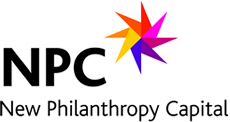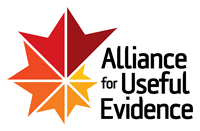Top Tips for Engaging with Funders on Impact Measurement and Evaluation
Meredith Niles is an Investment Director at the venture philanthropy organisation Impetus Trust. Impetus provides charities and social enterprises in its portfolio with a package of funding, management support and specialist expertise. This is the second of two blogs by Meredith on why impact matters to funders and how to work with them to measure your organisation’s impact. A version of this first article appeared in The Fundraiser, March 2012.
- Approach your funders as collaborative partners. Treat your conversations with your funders about impact evaluation as a constructive dialogue. Many funders will have a standard reporting template that they ask their grantees to complete on a regular schedule. That does not mean, however, that you can’t and shouldn’t have a conversation with them about reporting in a different way if you think it would make more sense for your organisation. Perhaps you have a regular data collection schedule that doesn’t match the reporting time frame they’ve requested. Or maybe they’ve asked for data that would be hard for you to collect and that, based on your understanding of your theory of change, you don’t think is particularly relevant to your work. Most funders would be quite happy for you to suggest amendments to their standard reporting framework on a reasonable basis such as this. Some funders have specific metrics on which they need to report for their own stakeholders, and you should make an effort to be respectful of these and try to accommodate them where possible. It’s a two-way street.
- Plan ahead. The best time for your first conversation with a funder about how you’ll report back to them is at the time the grant is made (or even before if the funder is willing to engage at this stage), not the day before your first report is due. It’s hard to re-create data you haven’t been tracking from the start, so getting buy-in on both sides as early as possible about what will be measured is crucial.
- Build it into your budget. Evaluation doesn’t have to be expensive, but it’s never entirely without cost. Most funders expect that there will be a line item in your funding proposal to them for evaluation; be sure that you build it into your plans.
- Keep it proportional. In their quest to impress and win the bid, some charities overpromise on what they can deliver in terms of impact evaluation. Think about what’s really called for from the particular situation and what is realistically achievable. Most funders will accept a level of reporting back that is consistent with the scale of the commitment they have made to you.






+44 (0)207 438 2598
[email protected]
Follow us on Twitter
Join us on LinkedIn
Join us on Facebook
Our photos on Flickr
Subscribe to our Feed